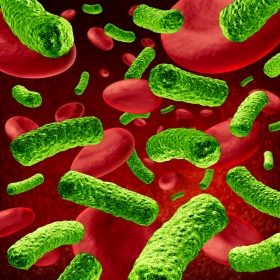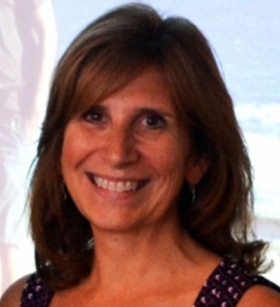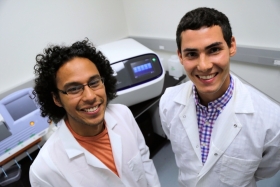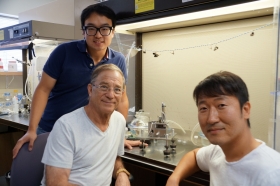A biomedical scientist at UC Santa Barbara may have a hand in reversing both those trends, thanks to his novel therapeutic approach and a big new grant from the National Institutes of Health.
Jamey Marth, director of UCSB’s Center for Nanomedicine (CNM) and a professor of the Sanford-Burnham Medical Research Institute, has been awarded $3.5 million from the NIH Heart, Lung and Blood Institute for his continued work to boost survival rates in sepsis.



